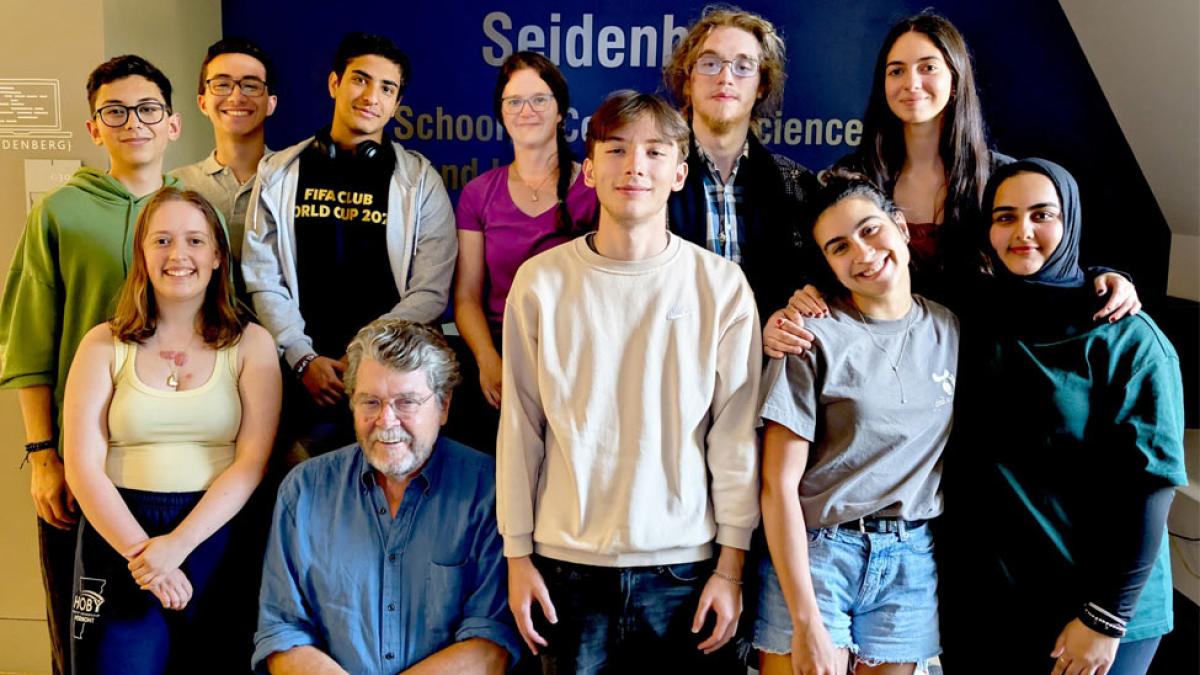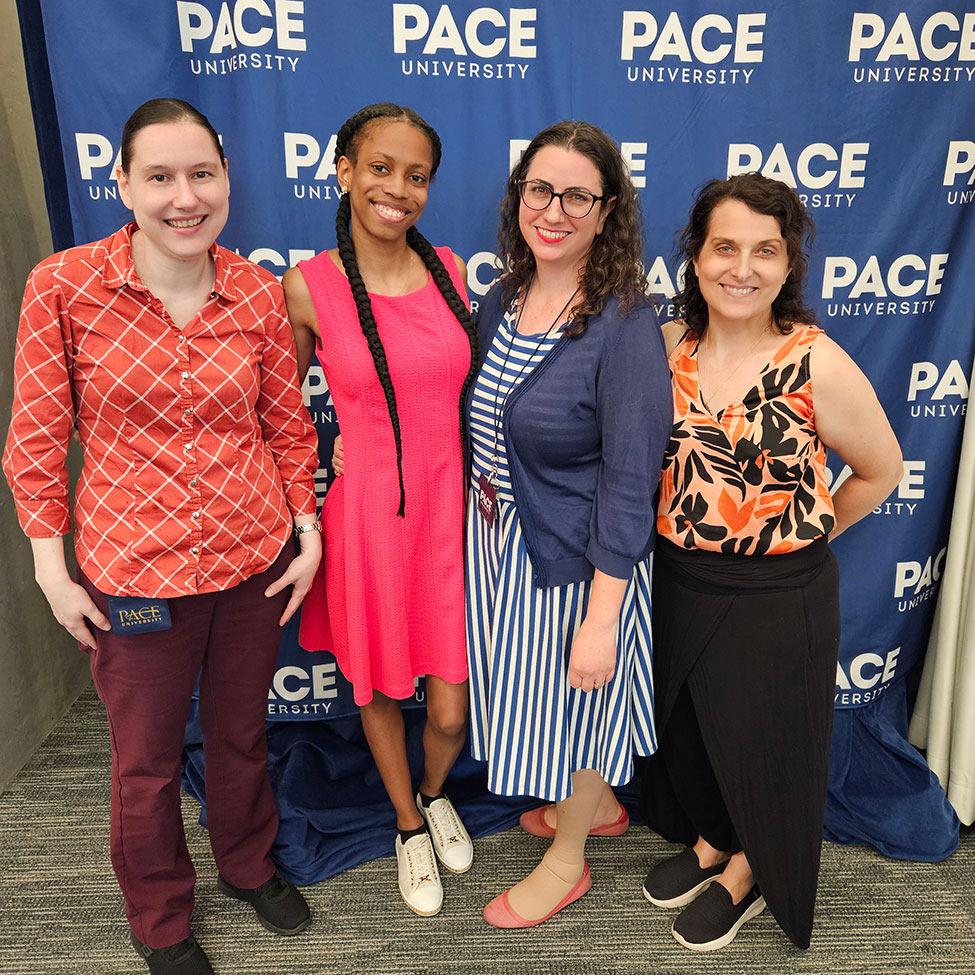
Not Everyone Wants To Use AI – But Do We Still Have A Choice?
Dyson Philosophy Professor James Brusseau speaks to Dazed Magazine on how AI’s rapid integration into everyday life is eroding choice and creativity. Professor Brusseau, whose research explores human-AI interactions, warns of a growing “narcotic of convenience”—where convenience replaces curiosity, and opting out of AI becomes increasingly difficult. He reflects on how past web searches allowed for serendipitous discovery, and cautions that efficiency gains may come at the cost of critical thinking and deeper learning: “Freedom and creativity require work,” he tells Dazed.
Capital One Venture X Rewards Credit Card
Lubin Professor Andrew Coggins Jr. provides expert insight to WalletHub on the Capital One Venture X Rewards card, analyzing its travel perks and financial considerations for cardholders.
No Premium, No Problem
Spotlighting affordable tech in education, Watchmen Daily Journal features insights from Dyson Chemistry and Physical Sciences Professor Elmer-Rico Mojica. He encourages students and teachers to use AI tools—free or not—with intention and curiosity. “A tool is only as thoughtful as its user,” Mojica notes, emphasizing that meaningful learning doesn’t require premium subscriptions. His message: resourcefulness and reflection matter more than price tags in today’s tech-driven classrooms.
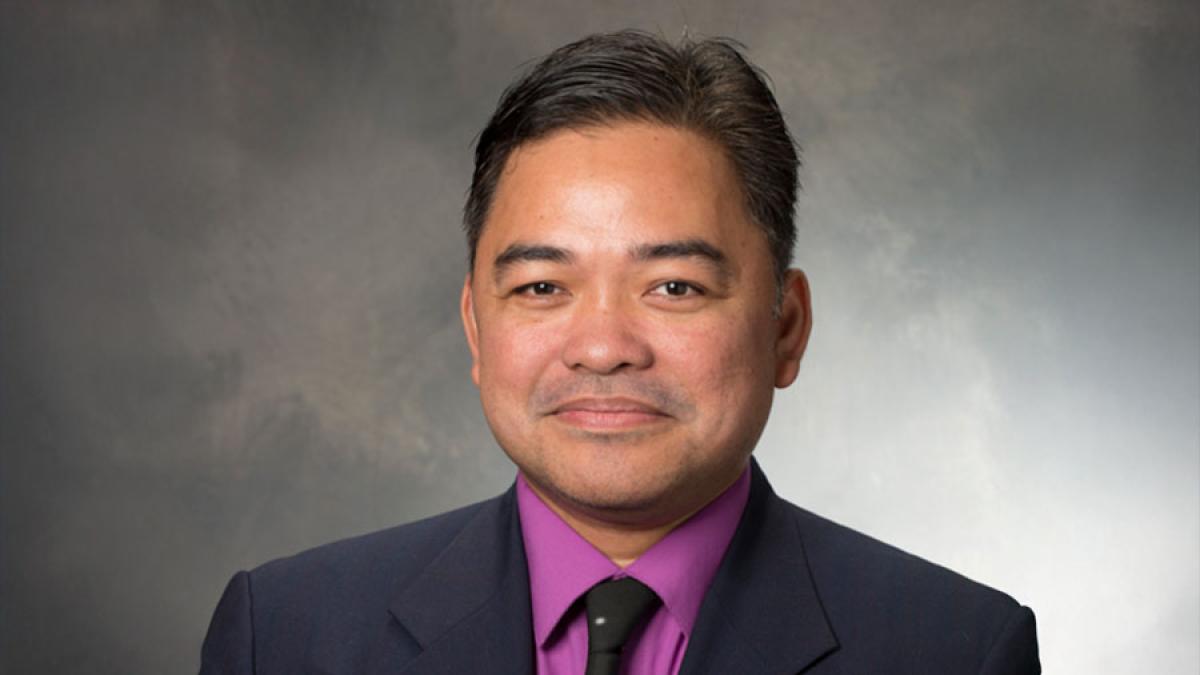
Deaf West Theatre and Pace University to Launch Artist-in-Residence Program
Sands College of Performing Arts and Deaf West Theatre have launched an artist-in-residence program dedicated to bridging accessibility and performance in musical theater training. The partnership reflects Pace’s commitment to inclusive education and innovation in the arts, Broadway World reports.
126 New York Schools Waive College Application Fees
Pace University is one of nearly 130 institutions participating in New York State’s fee-waiver initiative for college applications. Both the NYC and Westchester campuses are waiving fees throughout October, helping remove financial barriers for prospective students.
New York Inspector General Lucy Lang Honored with Tucker Prize for Prosecutorial Excellence
The Elisabeth Haub School of Law at Pace University honored New York State Inspector General Lucy Lang with the 2025 Robert S. Tucker Prize for Prosecutorial Excellence during a ceremony on September 30, 2025, at Pace University’s New York City campus.
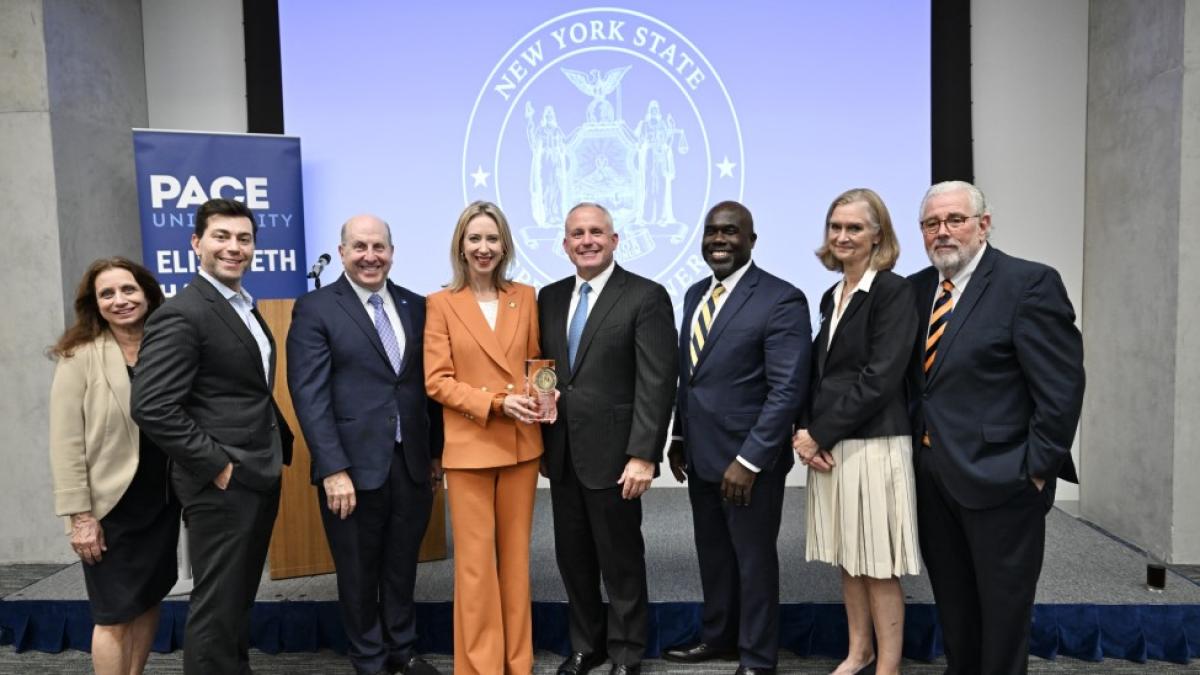
Advisory Board Releases Community Needs Study
In a recent Hudson Valley Press article titled “Advisory Board Releases Community Needs Study,” Pace University Interim Associate Provost Rebecca Tekula highlighted how the study combines research and community engagement to deliver actionable insights.
Looking for a wonderful way to meet your colleagues, and learn about key issues impacting staff? Attend a Staff Council meeting!
The Westchester Staff Council (WSC) and New York Staff Council (NYSC) offer vital platforms for university staff to engage with senior administration and discuss key issues.
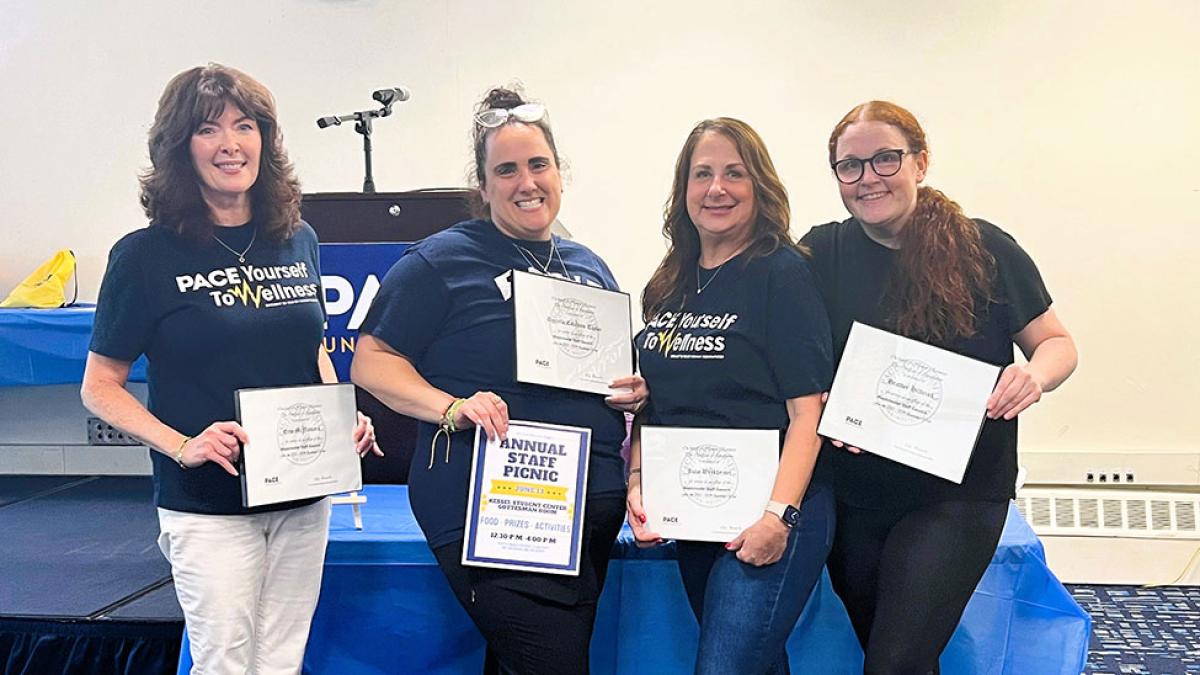

Staff members! Looking for a wonderful way to meet your colleagues, learn about key issues impacting staff, and perhaps join a committee?
The Westchester Staff Council (WSC) and New York Staff Council (NYSC) offer vital platforms for university staff to engage with senior administration and discuss key issues. Open to all staff members, with voting rights reserved for full-time staff, each council meets monthly (sometimes jointly) from September through May, and wrap up the year by hosting a fun, community-building picnic. Interested in more involvement? Join one of the various committees like the Benefits, Faculty, or Safety Committees and represent your peers!
Each Staff Council’s Executive Committee, composed of the Chairperson, Vice-Chairperson (or Co-Chairpersons), Secretary, and Treasurer, is elected by voting members for one-year terms, with a maximum of four consecutive terms per position. Staff council co-chairs play an essential role in advocating for staff at the Board of Trustees' Staff Affairs Committee meetings held twice annually. The Executive Sponsor to the Staff Councils who is a member of Operations Committee, guides them on surfacing concerns and has been working with them to draft a new charter, with the aim of clarifying how they engage in university governance. Alongside the elected staff representative, staff council co-chairs gain exciting opportunities to interact with board members and senior leaders, obtain experience speaking and presenting to a committee, and to represent colleagues and fellow coworkers on numerous occasions.
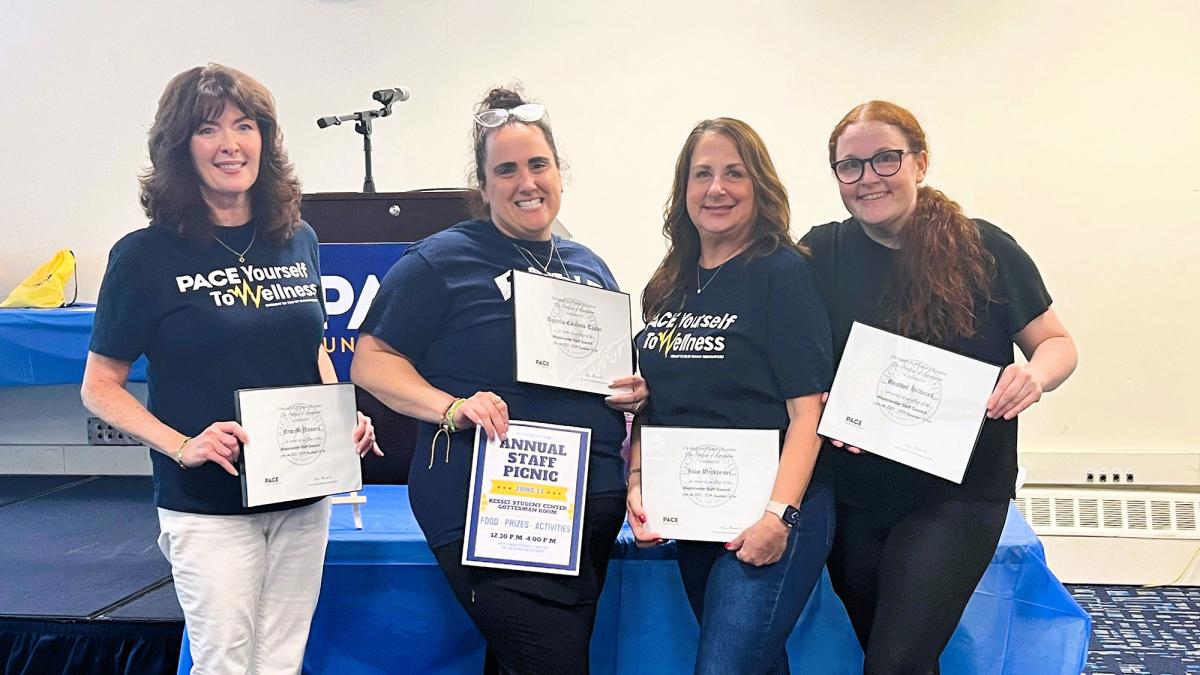
For more information, check out the websites for the NY Staff Council or the Westchester Staff Council.
Pace University Recognized in Wall Street Journal’s Best Colleges 2026 Rankings
Pace advanced 15 places in The Wall Street Journal’s 2026 Best Colleges Rankings, earning recognition for student success, affordability, and diversity. With a perfect diversity score of 100, Pace stands out as a leader in access and opportunity.
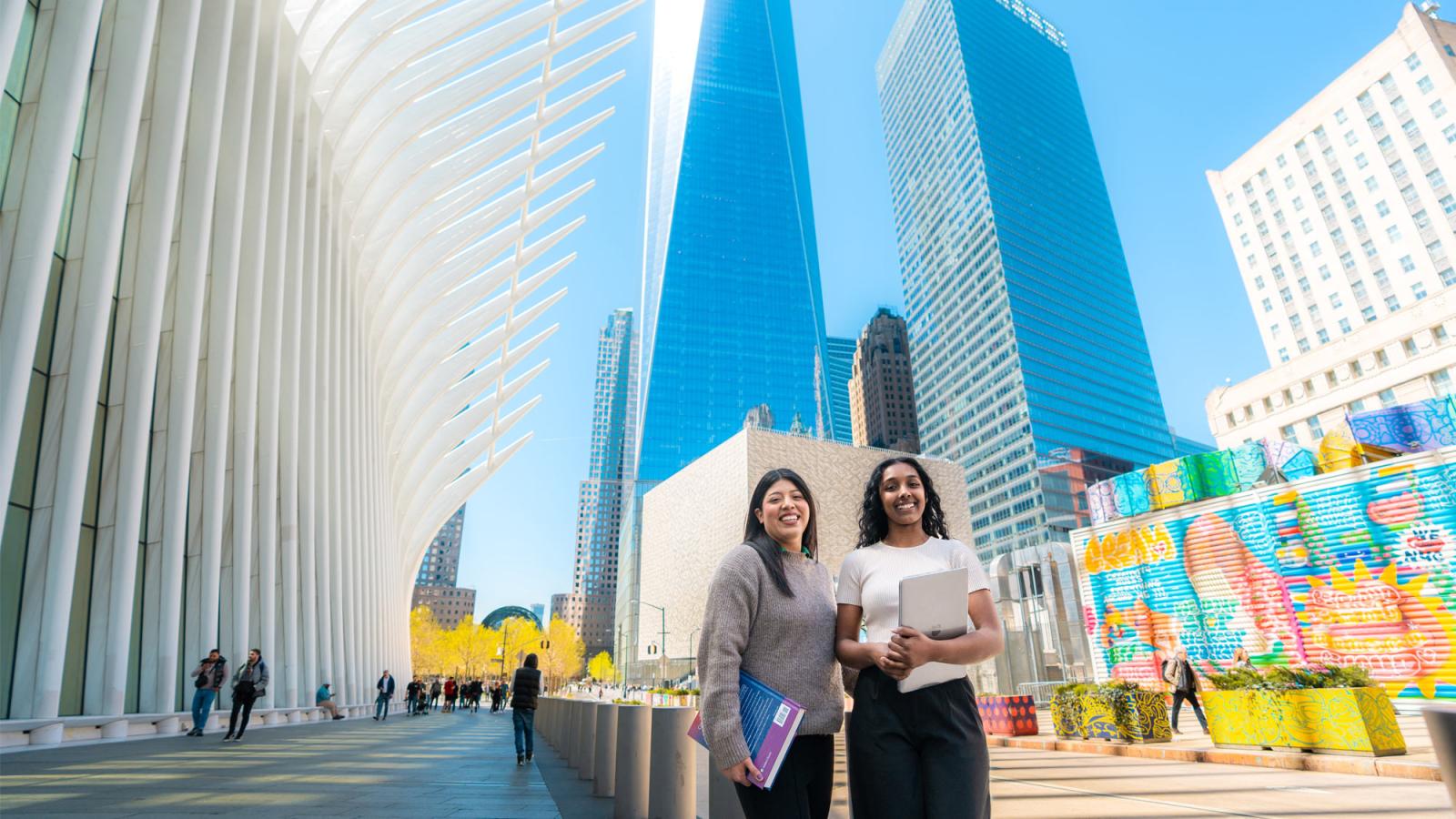
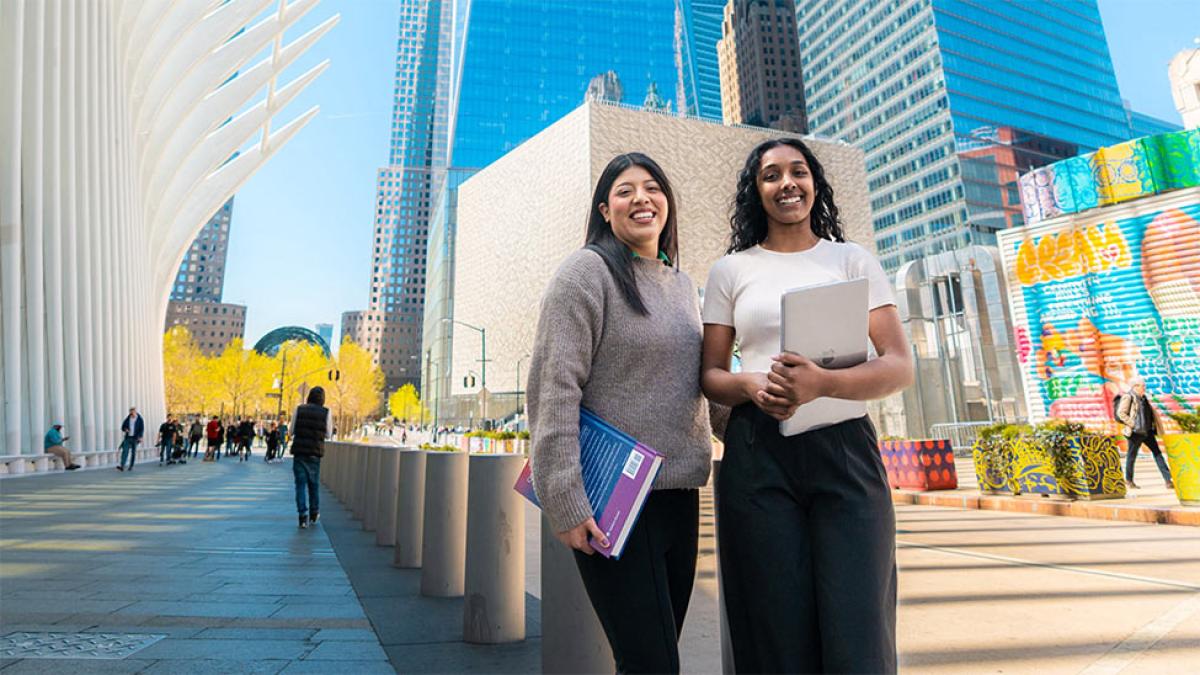
The Wall Street Journal’s America’s Best Colleges 2026 Rankings have been released, and Pace University has once again earned national recognition for delivering value, student success, and diversity.
For 2026, Pace ranked #242 out of 584 colleges, moving up 15 spots from last year. This improvement reflects the continued strength of Pace’s programs and our commitment to preparing students for careers and meaningful lives.
Pace ranked ahead of a number of respected universities, including New York University, the University of Miami, Hofstra University, and the City University of New York. This placement highlights Pace’s ability to deliver high-quality outcomes and opportunities to students at a competitive value.
Pace was also one of just four universities nationwide—including Stanford—to achieve a perfect diversity score of 100. This measure takes into account the ethnic diversity of students and faculty as well as the inclusion of students from lower-income families and those with disabilities.
This recognition underscores Pace’s long-standing mission of providing access and opportunity to students from all backgrounds, and it affirms the value of the diverse, inclusive community we continue to build.
The WSJ rankings place the greatest emphasis on student outcomes, such as graduation rates, post-graduate salaries, and the speed with which a college education pays for itself. Additional factors include student and alumni surveys and diversity.
Pace’s strong results across these measures show that our students are well-prepared to achieve professional success while benefiting from an inclusive and supportive educational environment.
As national conversations continue about the value of higher education, these rankings highlight Pace as an institution that delivers measurable results: a cost-effective education that leads to real opportunities, strong career outcomes, and social mobility.
Explore Pace University’s other awards and rankings.
More from Pace
More Pace students than ever—34 across both campuses—have been named UN Millennium Fellows, tackling the world’s biggest challenges through local action and global collaboration. From clean water to climate change, these Go-Getters are making their mark.
Pace University has been awarded more than $3 million from the New York State Department of Health’s Healthcare Education and Life-skills Program (HELP) to establish the College of Health Professions Pathways to Practice Initiative (CPPI.
Driven by her own story of resilience, Ipshita Ray, PhD, is leading Lubin’s new Center for Leadership and Emotional Intelligence in collaboration with Harvard’s Leadership and Happiness Laboratory. Learn how this new program is helping equip the next generation of leaders through the science of happiness.
